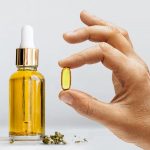For decades, both amateur and professional athletes have been employing cannabinoids and terpenes found in hemp for recovery and performance enhancement.
This is because cannabinoids such as cannabidiol (CBD) and others have a pronounced and positive influence on inflammation and pain, two of the most common conditions suffered by athletes, especially those of the endurance variety.
Numerous contemporary research studies and the legalization of hemp and CBD has revealed why athletes might gravitate toward CBD to both prevent and treat fatigue, pain, and enhance overall recovery.
Anecdotal reports from professional athletes also indicate that CBD may shorten recovery time and prevent or decrease injuries due to its powerful anti-inflammatory properties.
This issue of athletes employing cannabinoids to reduce recovery time and treat the pain associated with injuries becomes even more important in light of two major problems: the Black Box Warning side effects of non-steroidal anti-inflammatories (NSAIDs), and the opioid epidemic.
Common over the counter NSAID medications (ie. ibuprofen and naproxen) feature a high risk of heart attack, stroke, and gastro-intestinal bleeding at any dose or frequency.
In addition to NSAIDs, many athletes are prescribed potentially addictive opioid drugs, such as tramadol and oxycontin (oxycodone hydrochloride).
According to the Mayo Clinic, “When tramadol is used for a long time, it may become habit-forming, causing mental or physical dependence.”
Does CBD Relieve Pain & Inflammation?
Inflammation is not a negative thing. In fact, medical professionals are aware of the fact that inflammation triggers the body’s repair process and helps to repair damaged tissues and muscles.
Excessive inflammation, however, can damage muscles and weaken overall performance if not addressed. Strains, sprains, and similar injuries commonly result in inflammation that becomes a negative symptom.
“CBD for exercise-induced inflammation is absolutely the next big area we need to explore,” said Thorsten Rudroff, an exercise researcher and director of the Integrative Neurophysiology Laboratory at Colorado State University, during an interview with U.S. News & World Report.
Research Studies Related to Cannabinoids and Exercise
The ability of CBD to reduce inflammation is one of its most appealing characteristics for athletes and anyone who has experienced overuse or has suffered a joint- or muscle-related injury.
A 2018 research study entitled “Cannabinoid Delivery Systems for Pain and Inflammation Treatment” that was published in the journal Molecules investigated the role of cannabinoids in the treatment of pain, inflammation, and a range of common diseases. “There is a growing body of evidence to suggest that cannabinoids are beneficial for a range of clinical conditions, including pain, inflammation, epilepsy, sleep disorders, the symptoms of multiple sclerosis, anorexia, schizophrenia, and other conditions,” wrote the researchers.
The study observed the connection between inflammation and pain, reporting, “[A] chronic state of inflammation plays an important role in the onset of classic inflammatory diseases (e.g., arthritis) but also of various diseases, including cardiovascular and neurodegenerative diseases, diabetes, cancer, [and] asthma.”
A 2018 review study entitled “Cannabidiol to Improve Mobility in People with Multiple Sclerosis” that was published in the journal Frontiers in Neurology explored the ability of CBD to decrease pain and increase mobility in patients with multiple sclerosis.
Reported the researchers, “There is evidence that CBD has a number of beneficial pharmacological effects. It is anti-inflammatory, antioxidative, antiemetic, antipsychotic, and neuroprotective.”
The study observed that cannabinoids (one of which is CBD) may be an effective therapeutic supplement or replacement for opioids in the treatment of pain, avoiding the negative side effects that are so common with this family of analgesic drugs.“Common side effects of opioid administration include physical dependence, dizziness, sedation, nausea, vomiting, tolerance, constipation, and respiratory depression,” reported the researchers.
The study concluded that CBD may play a valuable role in the future in improving mobility via its anti-inflammatory mechanism.
“It is our opinion that CBD supplementation may be advisable for MS to reduce fatigue, pain, spasticity, and ultimately improve mobility,” reported the study.
A 2009 review study entitled “Cannabinoids as Novel Anti-inflammatory Drugs” that was published in the journal Future Medicinal Chemistry investigated the ability of cannabinoids to treat inflammation and improve immune function.
Reported the study, “The fact that both CB1 and CB2 receptors have been found on immune cells suggests that cannabinoids play an important role in the regulation of the immune system.” The study identified the mechanism by which cannabinoids suppress inflammatory response and “subsequently attenuate disease symptoms.”
The study’s authors also observed a connection between cannabinoids, inflammation, and cancer. “Cannabinoids may also be beneficial in certain types of cancers that are triggered by chronic inflammation. In such instances, cannabinoids can either directly inhibit tumor growth or suppress inflammation and tumor angiogenesis,” reported the researchers.








